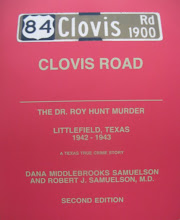 |
| Dr. William Rowland Newton, Jr. |
In this section of Old Testament Scripture the wisdom writer of Ecclesiastes (Solomon) wonders at the enigma of the failure of God to quickly punish wickedness. The wicked go to church (the holy place), die, and are buried and may even be praised in the city where they committed crime. Failure to punish a crime quickly may lead to more crime and wrongdoing. The enigma bothers the author, but is later answered in a parabolic teaching, Matthew 13:36-43.
Dr. Newton lived more than 70 years. He ratted on his friends. He dragged the people of Cameron to west Texas many times to testify for an unjust cause. He arranged a murder. He attempted murder. He forged documents. He got kickbacks. He bribed public officials. He cheated his siblings out of their inheritance. He ran his mother out of her house and probably burned her up. He manipulated the futures market. He sued everyone. He cheated on his wife. He was a drug dealer. He is not remembered for these things in his home city, but he did join the church. Read the Website: “He established the 1st hospital in Cameron, was well-known, revered physician in this entire area. Dr. Billy built the Newton Memorial Hospital in Cameron in memory of his father.”
While the parable of the tares may have only referred to the members of the church and not to all people, it can help answer the dilemma of the unpunished civil and criminal matters for the writer of Ecclesiastes. When the harvest comes, the probationary time of forbearance for the tares is over, but not until His time is fulfilled. It is part of the process of understanding all that +Dr. William Rowland Newton, Jr. did, and was allowed to do. And, it allows us to reflect on what we ourselves have done.
(Ref: Walvoord and Zuck, Bible Knowledge Commentary, Old Testament, p. 997, 1985)

This comment has been removed by a blog administrator.
ReplyDelete